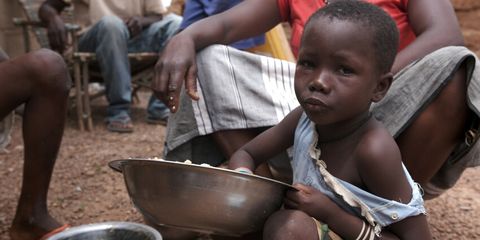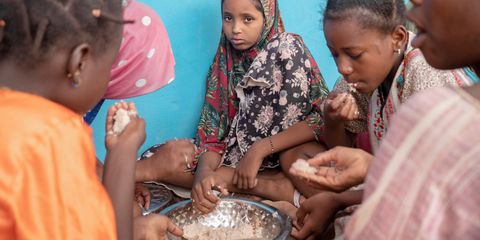In a displacement camp in Mali, 33-year-old Hamssetou has started a soap making business. Her children can now eat and go to school.
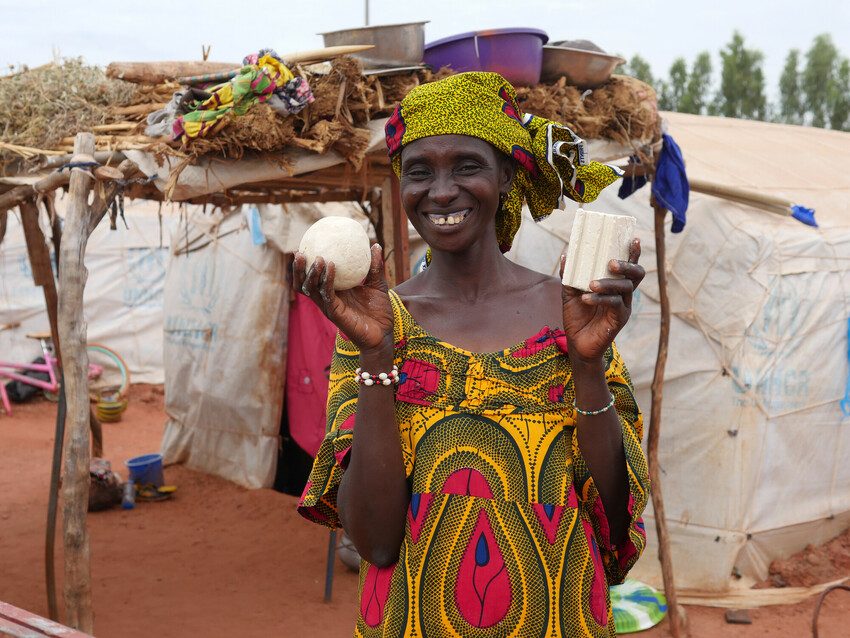
Mother of 5 Hamssetou used to live a quiet life in a rural village where she made a living as a farmer. “We worked in the fields and lived in harmony with our neighbours. We had to leave when the conflict broke out,” she explains.
Now living in a displacement camp in Mopti Region, life is much harder. Her husband works abroad and is able to send her some money occasionally, but it is not a regular income. One of Hamssetou’s biggest concerns is finding enough food to feed her large family. The food shortages in the camp have caused price rises and have left children suffering from malnutrition.
“Even now, I don’t know if I will be able to buy food or not. I used to get a lot of help, but now it is scarce. Fortunately organisations like Plan International are helping us a lot. We are really suffering from the lack of food,” says Hamssetou.
“I sell the soap every day. I use the profits to ensure that my children can eat and go to school.”
Hamssetou
Hamssetou received a cash transfer from Plan International and set some of it aside to start a soap making business so she could generate an income going forward. “To prepare the soap, I need 3 litres of palm oil, 2 litres of groundnut oil, perfume and bicarbonate. Then I boil the oil in the evening. In the morning, after the children have gone to school, I make the soap and then sell it in the afternoon” she explains.
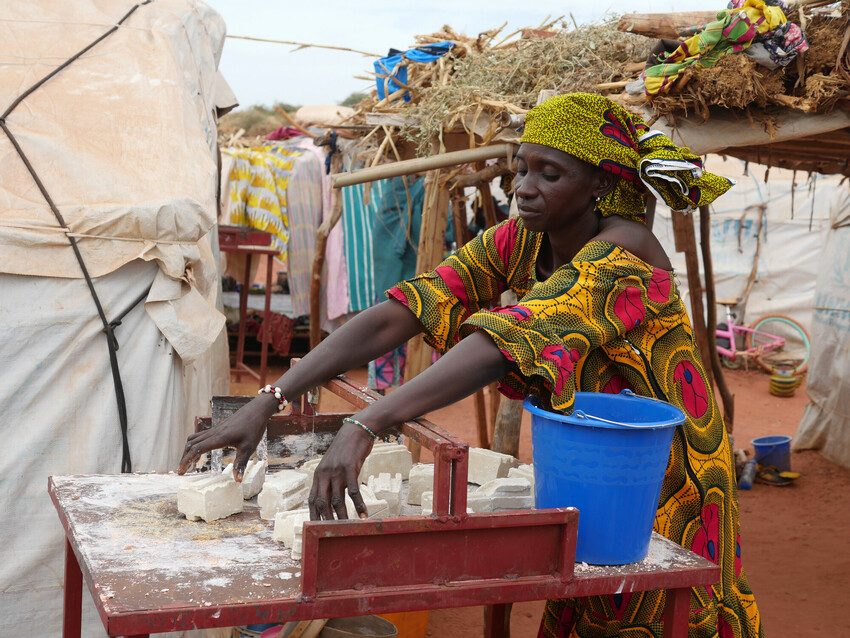
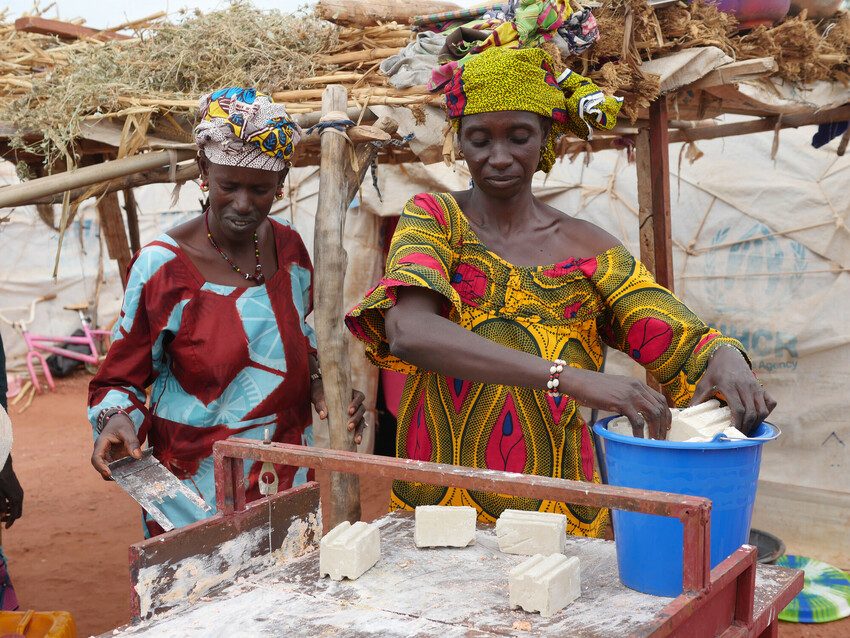
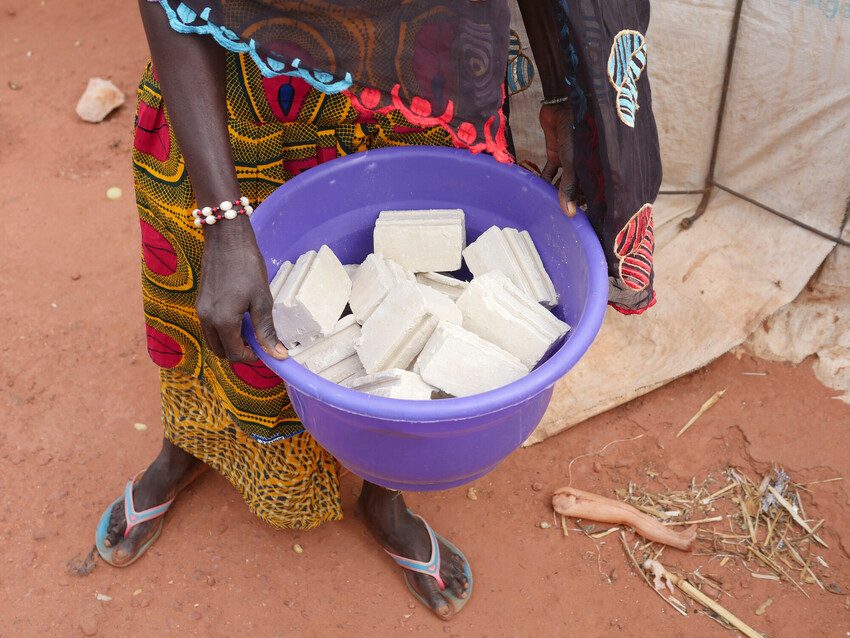
“During my soap production, each mould can produce 25 bars of soap which make me a profit of 1,500 to 2,000 CFA francs. This money allows me to pay the school fees for my children. We also have a soap sellers’ cooperative and I pay my weekly membership fee every Sunday,” says Hamssetou.
Soap and detergents are used by every household in their daily lives in the camp, so the demand for it is high and Hamssetou has a regular customer base. “I sell the soap every day. I walk around the camp to sell it to the women I know. I use the profits from my soap sales to ensure that my children can eat and go to school.”
Education prioritised even in crisis settings
For Hamssetou, her children’s education is her main priority, recognising that a good education is the way out of poverty. “What I want for the future of my children is that they study and finish their education because when you study you never lose the knowledge you have acquired.”
“I have 4 boys and a girl. The girl is in grade 6, one boy is in grade 4 and the other 2 boys are in grade 3. I have enrolled my children in school because I think school is very important. Through school they can become teachers or policemen or workers in humanitarian organisations or even political leaders,” concludes Hamssetou.
About our intervention
Plan International is supporting women living in crisis-affected countries like Hamssetou and her children with unconditional cash transfers.
In total, 1,159 people (including 805 women) have been supported through Plan International’s unconditional cash programme, helping them to buy food and start small businesses. The money is distributed in 2 instalments of 41.000 CFA francs (€60). This was the second cash transfer initiative Plan International undertook in Mopti region in 2022.
